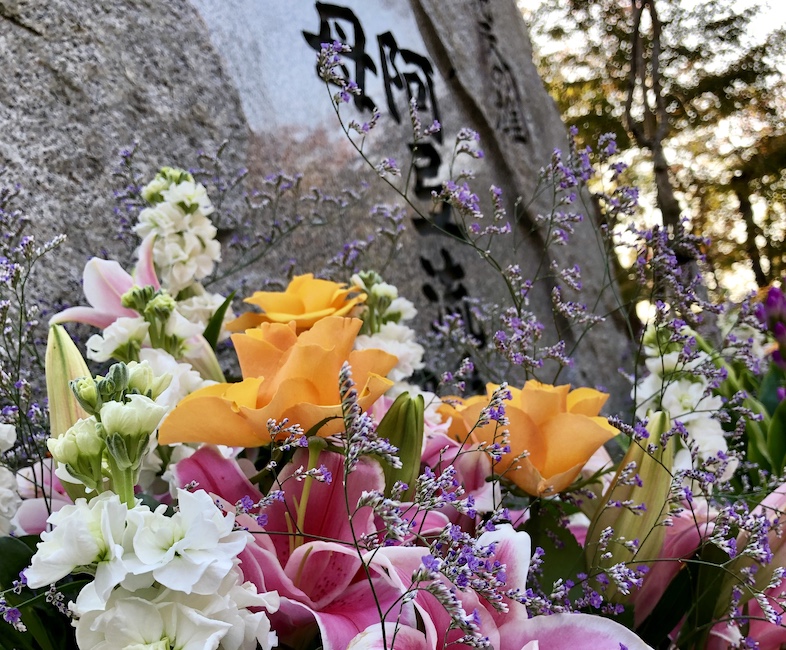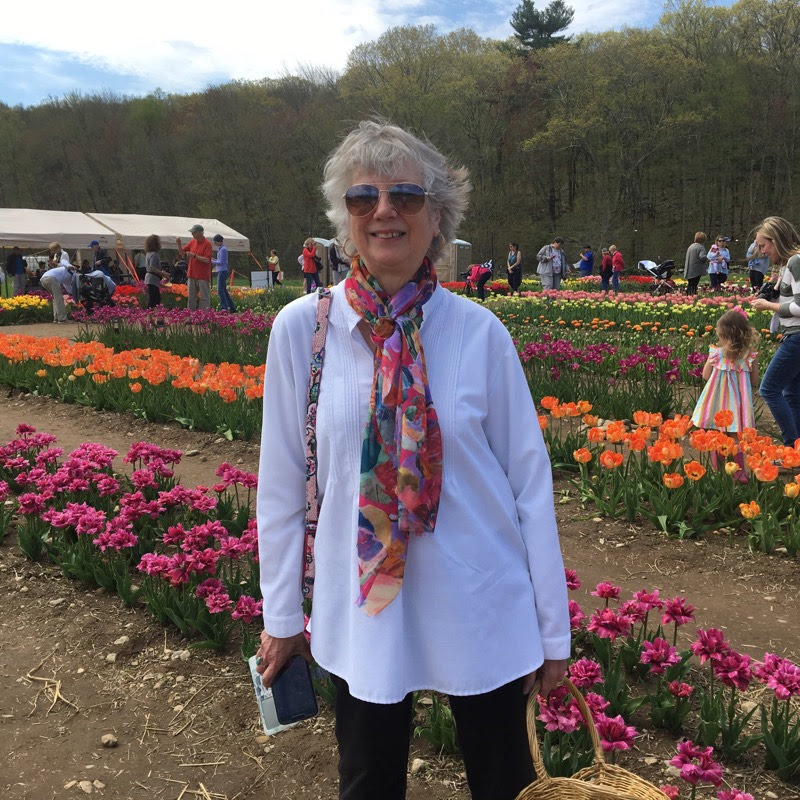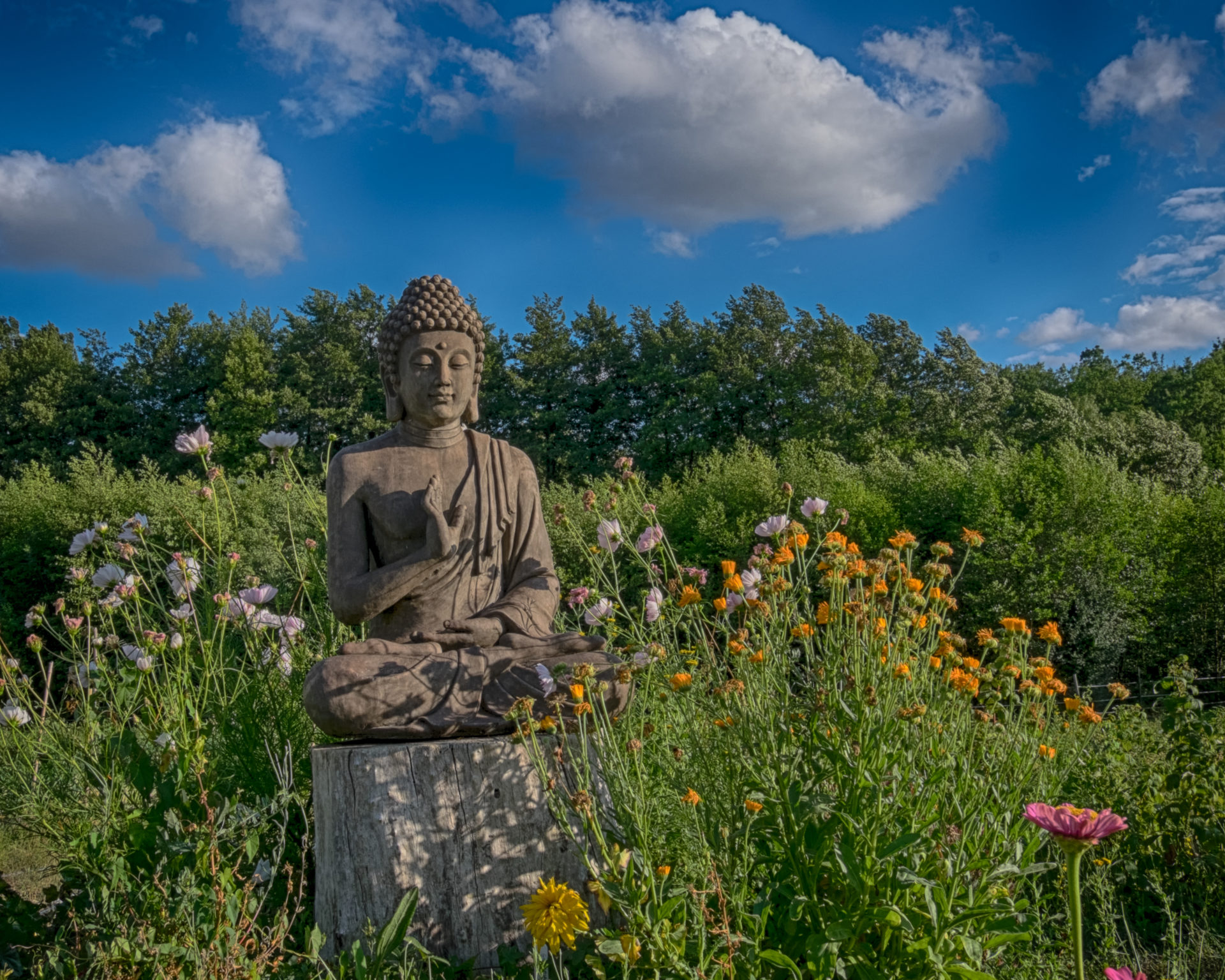By Susan Schmidt

When I first met Thay and attended his retreats, his emphasis on the miracle of reconciliation and its crucial importance was not lost on me. My dysfunctional family had perfected the “silent treatment” and the art of holding a grudge.
When my father died at the age of forty-four, I was fifteen and my brother was three.
By Susan Schmidt

When I first met Thay and attended his retreats, his emphasis on the miracle of reconciliation and its crucial importance was not lost on me. My dysfunctional family had perfected the “silent treatment” and the art of holding a grudge.
When my father died at the age of forty-four, I was fifteen and my brother was three. My fearful and shy mother had bipolar disorder, which would not be properly diagnosed for another thirty years. When friends and family told me at my father’s funeral that I was now the head of the family, I not only believed them but determined to do my best.
I adored my baby brother Paul, and caring for him brought me the greatest joy. As years went by, we continued to have a close relationship, and I was able to support him financially and emotionally when he was down and out. Soon after my marriage, my husband and I made it possible for Paul to relocate to another part of the country to begin a new life.
I brought my mom to Massachusetts to live near me, and a huge shift took place in both of us. I stopped wishing she were different, and accepted and loved her just as she was. With proper diagnosis and treatment of her mental illness and the delightful therapy of spending time with our baby daughter, my mother thrived and became an affectionate and grateful person.
When my mother passed away in 2009, it was important to me that my brother join me in making as many decisions as possible about the funeral. He selected the casket and flowers, and dealt with the mortician. My daughter and I had had time to create an Order of Service and Remembrance to be distributed to those attending the church service. The pink folders were stacked neatly in a box near the back of the funeral parlor, ready to be handed out the following day at Mass.
When my brother noticed the folders, he handed them out to whoever was present in the room at the time. My daughter told him that they were for tomorrow’s Mass and asked, “Why don’t you speak with my mom before you give out any more?”
He stormed up to me and screamed, “Who are you to make all the decisions? What gives you the right?” There, in front of my mother’s casket and in a room full of people we knew, my brother went totally ballistic. I shook in terror at the cruelty and rage emerging from his mouth, unable to move away. Just as he raised his fists at me, my husband appeared between us and put a stop to the nightmare.
I couldn’t stop crying for the rest of the night—I felt I had been punched. This was the kid brother whose diapers I’d changed and whom I’d adored all my life, and the sweet boy I had taken to the park countless times when he was a toddler and had supported every way I could. What was this really about?
Somehow I composed myself for the funeral, feeling numb and empty inside. Driving back to Massachusetts from Jersey, I wept the entire way. I had expected to lose my mother. But my brother too? Never. I felt a huge weight the size of a lead bowling ball where my heart should have been. The devastation I experienced was paralyzing and unrelenting for three full days.
I found a prayer written by Thay about reconciling with those who have made us suffer. Through blinding tears, I prayed with my whole being: “I open my heart and send forth my energy of love and understanding to everyone who has made me suffer. … I know now that these people have themselves undergone a lot of suffering and that their hearts are overloaded with pain, anger, and hatred. I know that anyone who suffers that much will make those around him or her suffer. … They have accumulated wrong perceptions about life, about me. … I see their suffering and do not want to hold any feelings of hatred or anger in myself toward them. I do not want them to suffer.”
By the time I had finished praying, the lead in my heart had totally dissolved, and I was no longer frozen in anguish. It wasn’t as if the painful episode hadn’t happened—it certainly had, and it continued to fill me with sadness, but I was now free. When I realized the depth of my brother’s hell, I had nothing but compassion for him, so there was nothing to forgive. While I still didn’t feel good about what had taken place, I was no longer deadened or unable to act in the present. My lifelong love for Paul won, and my only wish was for his own peace and happiness. This was such a powerful teaching for me, a powerful experience of love and compassion in action as opposed to mere theory or words.
At the time of my mother’s death, I was part of a group of Buddhist women who went weekly to the women’s prison in Framingham, Massachusetts to share mindfulness and meditation. We had helped the women form a Sangha named Free Hearts. Soon after the funeral, I chose to share with them what had happened with my brother. As I slowly read Thay’s beautiful and loving words of reconciliation that had softened my heart, one of the women began weeping uncontrollably. She had been estranged from her mother for a long time and blamed her for all the positive things she did not offer her daughter, like love and kindness. Along with her sobs, the words revealed her new insight: “How could she give me what she didn’t have herself?” she cried.
A few weeks after that evening, I spotted the woman sitting at a small table in the visitors’ room with her mother, sharing a birthday cake, with much laughter and obvious happiness. I couldn’t stop smiling!
It took a few years for my relationship with Paul to return to its previous closeness and trust, in large part due to my brother’s difficulty in forgiving himself. He eventually confided that he was locked into his own image and memory of Mom in her earlier years, always scowling and finding fault, and he never received from her what he needed in terms of love and acceptance. He resented me for those eighteen years spent with Mom in Massachusetts as she underwent transformation into a gentle, gracious, and loving mother.
We have worked it through using honest and loving dialogue over the years, and have arrived at a place of true equality, mutual respect, and, above all, love for one another.
I feel immeasurable gratitude for the miracle of reconciliation Thay has modeled and offered us.

Susan Schmidt, Courageous Awakening of the Heart, met Thay at a Day of Mindfulness at Harvard, Massachusetts, US in 2002. She is a retired holistic health care provider who practices with the Path of Peace Sangha in Franklin, Massachusetts.

